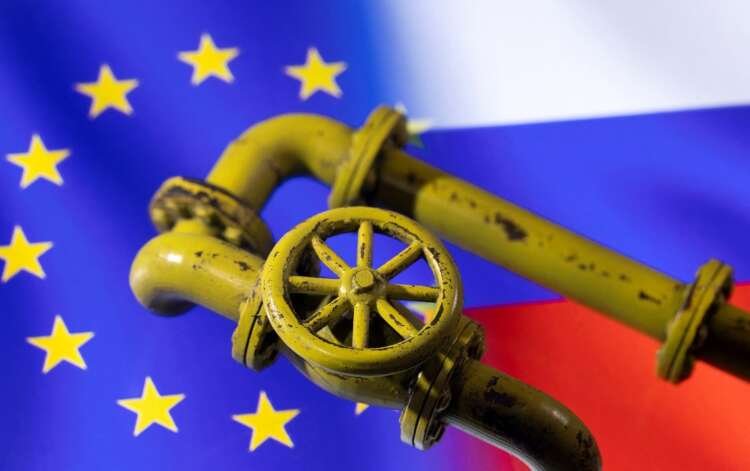EU, Norway agree to increase gas deliveries as Russian cuts deepen


By Kate Abnett and Nora Buli
BRUSSELS/OSLO (Reuters) – The European Union and Norway agreed on Thursday to cooperate to bring more gas from western Europe’s biggest producer to the EU’s 27 countries, nearly half of which are now grappling with cuts to Russian gas supplies.
Brussels said on Thursday that 12 EU member states are facing gas cuts https://www.reuters.com/business/energy/russian-gas-cuts-have-hit-12-countries-eu-climate-chief-says-2022-06-23, after Russia reduced flows through its Nord Stream 1 pipeline last week, citing technical problems.
Moscow had previously halted deliveries to Poland, the Netherlands and other countries that refused to comply with a new payment scheme.
Norway and the European Commission will “step up cooperation in order to ensure additional short-term and long-term gas supplies from Norway,” they said in a statement, after EU climate policy chief Frans Timmermans and Norway’s energy minister Terje Aasland met in Brussels.
“There is strong potential for increased sales to Europe in 2022, bringing close to 100 TWh of extra energy to the European market,” said the statement, which was also signed by EU energy commissioner Kadri Simson.
Norway has hiked gas production in response to shortages in Europe and previously said it expected its gas sales to rise by 8% to 122 billion cubic metres this year. That equates to an additional 100 TWh of supply – meaning all of its additional production is likely to go to the EU.
The EU imports roughly a fifth of its gas from Norway, compared with the 40% it got from Russia before Moscow’s Feb. 24 invasion of Ukraine.
The statement said Norway will remain a “large supplier” to Europe beyond 2030 and expressed support to increase its oil and gas exploration. It also pledged to cooperate on renewable energy and green technologies such as hydrogen.
Moves by some countries to invest in new gas fields have raised fears that the Ukraine war could derail climate commitments. U.N. Secretary General Antonio Guterres last week said new investments in fossil fuels are “delusional” https://www.reuters.com/business/environment/un-chief-says-dash-new-fossil-fuels-is-delusional-2022-06-14 given their impact on the climate.
The EU expects its total gas demand to drop 30% by 2030 to hit climate change targets, and has urged countries to mostly use renewables and energy savings to replace Russian gas.
(Reporting by Kate Abnett in Brussels and Nora Buli in Oslo; editing by Catherine Evans)
Natural gas is a fossil fuel primarily composed of methane, used as an energy source for heating, electricity generation, and as a fuel for vehicles.
The Nord Stream pipeline is a major natural gas pipeline that runs under the Baltic Sea, transporting gas from Russia to Europe, specifically Germany.
Energy supply refers to the provision of energy resources, such as gas, oil, and electricity, to meet the consumption needs of individuals and businesses.
Climate change refers to long-term shifts in temperatures and weather patterns, primarily driven by human activities, such as burning fossil fuels, leading to global warming.
Renewable energy is energy derived from natural sources that are replenished at a higher rate than they are consumed, such as solar, wind, and hydroelectric power.
Explore more articles in the Top Stories category











